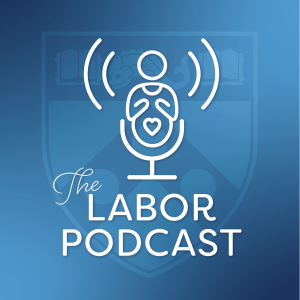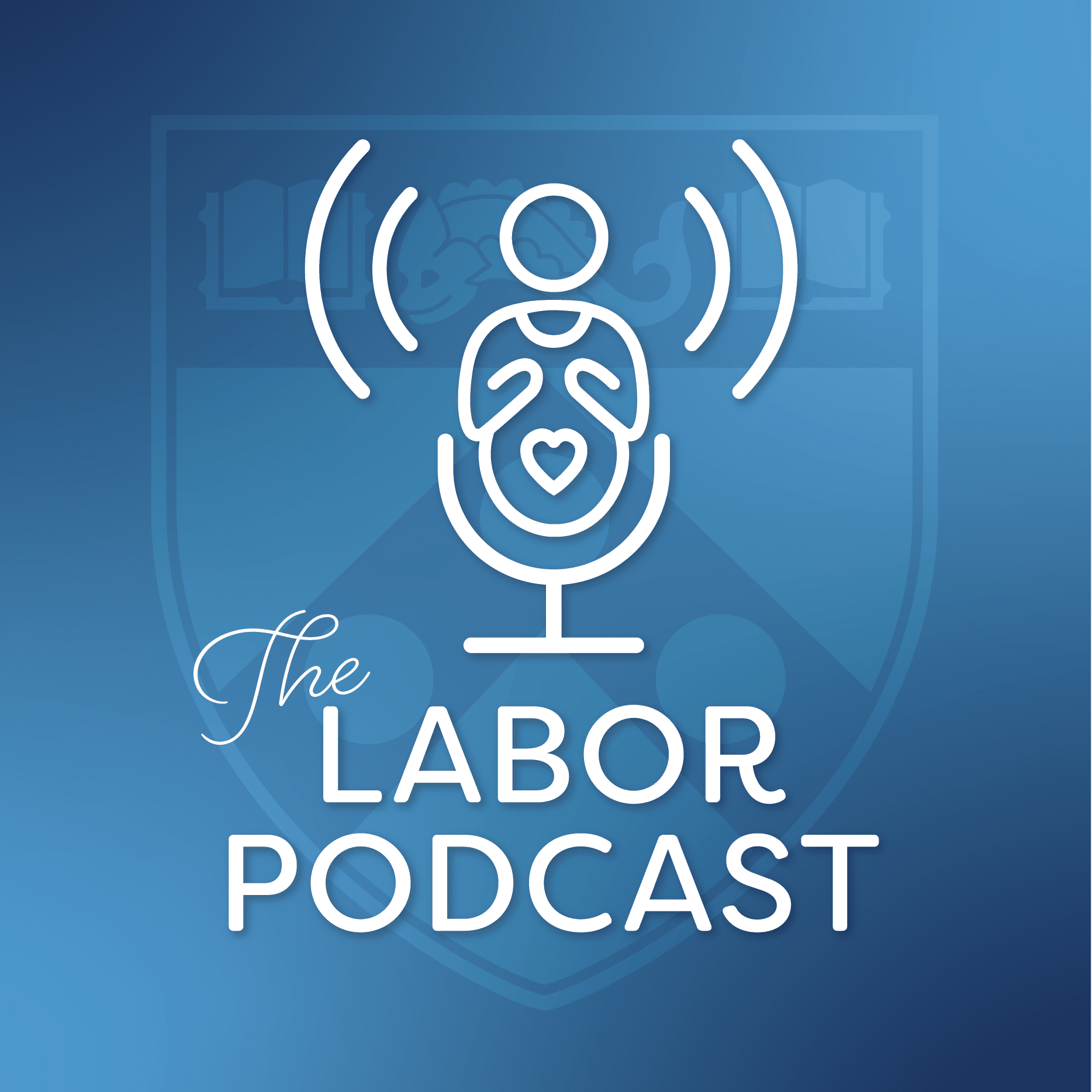Episodes

Sunday May 30, 2021
Postpartum Recovery
Sunday May 30, 2021
Sunday May 30, 2021
Today, we are joined by Dr. Dacarla Albright, an Ob/Gyn, who talks to us about recovery postpartum.
We answer the following questions:
- I’ve had my baby… now what?
-
What I will tell our patients is that the postpartum period lasts for six weeks. So basically, that means that it takes your body six weeks to go back to working like it did before pregnancy. And there are some things that may change forever.
-
They should rest and recover from their delivery. And while that is easy to say, it is hard to do with a newborn. Most people will start to feel like they are back to normal usually a couple of weeks after they deliver, and this can vary depending on if you have a vaginal or cesarean delivery. But your life is changed forever, and people are especially vulnerable during this time. You likely will not get as much sleep as you did before. You probably will have many more responsibilities because of your new baby. You’re going to be tired. That is why it is very important for new parents to pay attention to their mood.
Especially people who have a history of anxiety, depression, or other mental illness, are at higher risk for postpartum depression. But postpartum blues or depression can happen to anyone. If you do feel like you are becoming irritable, you are feeling down, you’re crying all the time, or thinking about hurting yourself, hurting your baby, or other people, please reach out and call your provider’s office. We have resources to help you. We know that postpartum depression is very common.
-
- What is it like to recover from a vaginal delivery?
-
Let’s first talk about immediately what happens when the baby and the afterbirth comes out. One of the things that we want to prevent is heavy bleeding, which can put a person’s life in danger. So, we usually will give a medicine through the IV, called Pitocin. If you don’t have an IV, we can give the same medication through a shot that goes in your leg.
Your provider will also check to make sure that your uterus is contracting down. They need to do that every fifteen minutes for the first hour after you give birth, and will continue to need to check at different times while you’re in the hospital. I know that it is not very comfortable, but please understand that it is very important to make sure that you aren’t bleeding too heavily.
Now, of course it is normal to bleed after birth. The bleeding after giving birth is called “lochia,” and may be bright red, dark red, and later on, will become brown. For most people it can start like a heavy period, but it should start to get lighter every day. It is normal to have some clots, especially after you have been sitting or laying down for a while.
However, if you are bleeding more than two pads an hour for more than two hours, that would be a reason to alert your nurse. Or, if you are at home, to call your provider’s office or come into the emergency room.
-
It is very common for people to have some tearing of the skin or muscle around the vagina. The area between the vagina and the anus is called “the perineum,” and this is the most common place to have tearing when the baby’s head comes out. Depending on how much you tear after delivery, that could determine how sore you are. Your doctor or midwife will repair these tears with stitches that dissolve on their own after a few weeks. Most people do well with just Tylenol and Ibuprofen.
Your nurse will usually give you ice to put on your bottom to help with the discomfort. You will also be given some numbing spray or pads and a spray bottle that you can fill with water to help clean down below, because it might be too uncomfortable to use toilet paper. It is also common to have burning with peeing. Usually, the first or second day after delivery is when you will be the most uncomfortable because that is when swelling occurs and also when you start moving around more and doing more for yourself. Also, you won’t have your epidural.
It is also important to make sure that you are on a good regimen to help you go poop. Usually, your doctors in the hospital will prescribe you a stool softener, but sometimes, women will not poop until they go home. You should try to not become constipated, because pushing hard to go can be very uncomfortable, and in some cases, may open the stitches.
If you do become constipated, please let your providers know so that they can give you other medications to help with bowel movements.
-
Sometimes, there can be bigger tears. If you have a larger tear that involves the anal muscles or the rectum, your providers will tell you more about what to expect. We do know that women with bigger tears will have more discomfort, and may require stronger pain medications. It is even more important that you are on a good regimen to go poop, and sometimes, your doctors may put you on multiple medicines to ensure that you don’t become constipated. And your doctors will ask you to follow up sooner after discharge to make sure everything is healing.
- Most people will start to feel better after the first week or two. But some people may continue to have soreness or bleeding for a few weeks after. It is also very important that you follow your provider’s instructions and don’t put anything in the vagina for 6 weeks. That includes sex! This is because that could break the stitches that you have or can cause infection because your cervix is still dilated from having your baby.
-
- What about a C-section?
-
So, in some ways, recovery is similar because you will have just had a baby, and the same things about checking in on your mood applies. However, remember that a C-section is major abdominal surgery! So it may take more time than after a vaginal delivery before you feel back to normal.
Most people will feel pain, discomfort, and soreness in their belly, particularly around the site of their incision, but it is normal to have pain in the whole belly too. Again, the first or second day after may be worse than the actual day of your C-section because all of your numbing medicine from your spinal or epidural has worn off, and you are now starting to do more for yourself. Some people even describe a pain that goes to their shoulder. This is because during the C-section, there is always some amniotic fluid and blood that we can’t remove from the belly. This fluid can irritate the lining of the inside of your belly, and even the lining right under your lungs since you were lying flat for surgery. That pain can actually translate to shoulder pain because of the nerves in your belly under your lungs!
-
It is important that you take the pain medications that your nurses and doctors offer you. While most of the time, Tylenol and Ibuprofen are enough, most people may need to take a stronger pain medication, like oxycodone. It is important that you take the pain medication you need in order for you to get up and move around. This is important for recovery, but also so that you don’t develop dangerous blood clots from not moving around.
That being said, most people only need oxycodone for a few days to a week after surgery. Oxycodone is a narcotic medication, so there are side effects like dizziness, nausea, sleepiness, and at very high doses, it can decrease your breathing rate. It’s why you always have to ask for it, and your nurses won’t bring it to you automatically without you asking. Like all narcotics, it can become addicting, which is why when you go home after a C-section, you are only prescribed a small amount. While we want you to be able to get up and move around and take care of your baby, we want to make sure that you first try the Tylenol and Ibuprofen if you can before you take oxycodone.
It is also normal to have more burning or pain on one side of your incision compared to the other. This may be because that was the area that your doctor was working more on when doing your C-section, or that may be where the knots are tied on the inside.
Also, after the first few days, you may start to notice that the skin around the incision can start to burn or even itch. That is also a normal part of healing.
-
Things that are never normal after delivery is a fever, where your temperature is greater than 100.4 F, especially if the fever stays after you take Tylenol or Ibuprofen. Shaking chills are also not normal. This may be a sign that you have an infection, and you should call your doctor or go to the emergency room to be evaluated.
Other reasons to call or come in would be if you have 1) nausea and vomiting where you can’t keep anything down for 12-24 hours, 2) your bleeding is all of a sudden getting heavier and you’re soaking through two pads an hour for two hours, 3) your pain in your belly or on your perineum is getting worse even though you continue to take your pain medications, or 4) if you see redness and swelling around your incision site. Finally, if your doctors have asked you to check your blood pressures after giving birth, if your blood pressure is >160/110, you should also call or come in. Also, if you have bad headaches that don’t go away, changes to your vision, or pain on the upper right side of the belly, you need to call or come in as well.
-
Most of the time, things that we get concerned about are infection or pieces of placenta that did not come out immediately after delivery. So when you come in, your doctors will likely need to do a pelvic exam or look at your incision, as well as blood work. They may also do a breast exam, because another cause of infection is mastitis, or an infection of the breast.
Sometimes, your doctors may get imaging as well. If they do think that you have an infection or there are pieces of the placenta that are stuck inside, you may need to stay in the hospital for a few days to get antibiotics or a procedure to remove the pieces that are stuck inside. Of course, there are other things that can also happen, but those two are the most common.
If the reason you’re coming in is for blood pressure issues, then your providers might be concerned about “postpartum preeclampsia” which is preeclampsia that continues even after you give birth. They will likely do bloodwork and give you blood pressure medication. Some people may need to stay in the hospital if we are not able to control your blood pressures easily.
-


No comments yet. Be the first to say something!